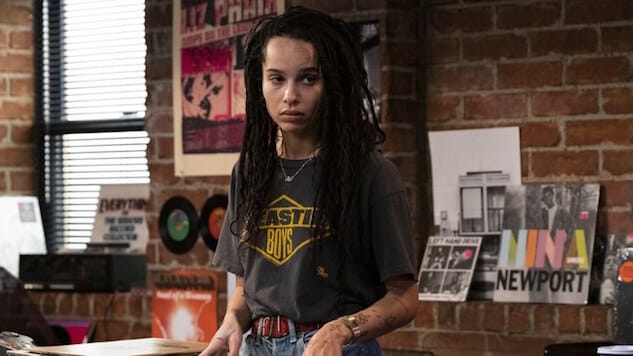High Fidelity and the Never-Ending Age of the Music Know-It-All
The reboot's protagonist isn't a womanizer, but she's still a grade-A snob
Photos courtesy of Hulu
For as long as I can remember, men have informed me of which music is right and good. This counsel isn’t necessarily delivered haughtily, nor is it always unwanted (As Sally Albright once said, “I have a number of male friends,” many of whom have enviable music taste). But, on the whole of my admittedly short (as-of-yet) life, uninvited opinions about music have come my way via the mouth of men far more frequently than that of any woman.
This phenomenon can likely be traced to the centuries of patriarchal ideals and systematic misogyny that are either consciously or subconsciously embedded inside each and every one of us, no matter the gender. Men, more often than women, typically feel less shy about taking up space and speaking their minds. But Rob, the record store owner and certified music snob at the center of Nick Hornby’s novel (and, now, two screen adaptations) High Fidelity, is especially obnoxious when it comes to his deep knowledge of classic pop and rock music (not to mention his desperate, at-times creepy romantic endeavors). Both the original character in the source material and John Cusack’s interpretation in the 2000 film are your classic case of my-way-or-the-highway, know-it-all “music guy”: They relentlessly rank their favorite albums, their desert island discs and the best of classic pop, and anything that’s not already primed for their specific demographic’s enjoyment is not worth the time. And they’re never hesitant to let you know.
In the 2020 version of High Fidelity, a Hulu series starring Zoë Kravitz as a female version of Rob, the Championship Vinyl employees are no less annoying about their internal musical databases. There’s some delight to be found in this new interpretation, just for the sheer reality of seeing the stylish Kravitz in such a offbeat role, but there’s also a lot to dislike—starting with the fact that we probably didn’t need this reboot in the first place, as Jillian Mapes pointed out over at Pitchfork. As was the case with movies like Ocean’s 8 and the all-female 2016 take on Ghostbusters, this new-age High Fidelity begs the question: Why do studios continue to invest time and money in new versions of old stories, instead of just prioritizing new, original content made by and featuring female creators? As Mapes also argued, it just feels counterintuitive.
-

-

-

-

-

-

-

-

-

-

-

-

-

-

-

-

-

-

-

-

-

-

-

-

-

-

-

-

-

-

-

-

-

-

-

-

-

-

-

-








































